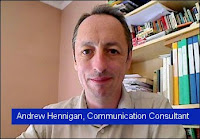So You Hate The Way You Look & Sound in Video? Here's What You Can Do About It.

Many times I have heard people say "I hate the way I look on video", or "I hate the way I sound in recordings". This is nothing weird; if you are not used to being recorded then there is always a disconnect between the way you see yourself -- always a mirror image -- and the way others see you. And you hear your voice partly through your head so it sounds different to you. Add to that the technical limitations of affordable hardware and its no surprise that occasional video makers are so disappointed. But there are some concrete things you can do about it. 1. GET USED TO IT . First of all it helps if you see yourself and hear yourself on video more often so you get used to how it looks and sounds. The first time will probably be a surprise but after a few attempts it will seem much more like you. Try also watching yourself on video in a mirror to get a more realistic idea of how others see you. 2. LET THERE BE LIGHT . Many problems are just caused by
